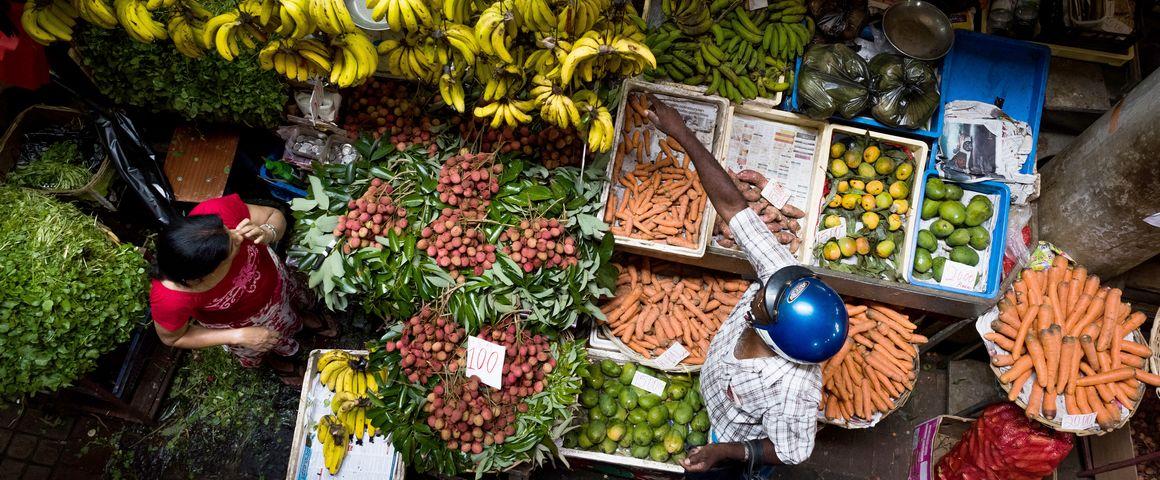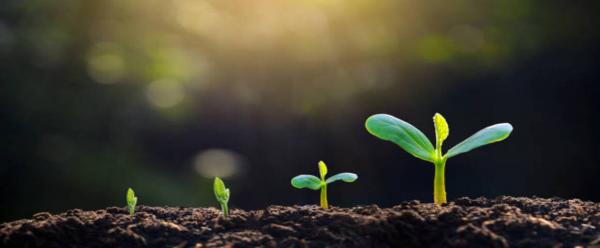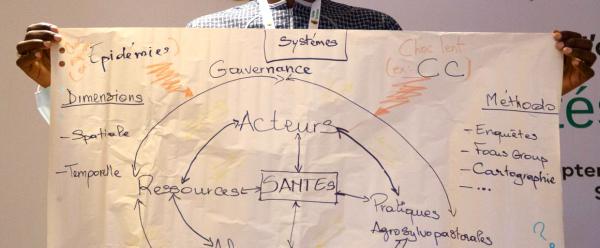Just out 3 November 2025
- Home
- CIRAD news
- News
- Studying food and eaters
How can we study food and eaters?

View of a market stall © Daniel, Adobe Stock
Researchers rarely reveal the details of the methodological choices on which their research is based. The theoretical and practical considerations that have guided them in these choices often remain implicit. In this book, the focus is on methods for studying food and 'eaters'. The use of the term 'eaters' is intended to distinguish them from the simple image of a consumer. It emphasises the multi-dimensionality of the act of eating, an act that engages individuals socially as much as physically and inserts them into space and time as well as into economic exchanges.
This book is the result of a collective effort by some forty established researchers. The aim is to provide a critical overview of fifteen methods currently used in or at the crossroads of different disciplines: anthropology, economics, geography, nutrition and sociology.
The book will be of interest to students, teachers, expert researchers and other professionals looking for methods to better understand or refine their own tools for studying food and eaters.
The book can be downloaded free of charge as an e-book (EPUB or PDF) on the Editions Quae website.
Studying food and eaters. A cocktail of perspectives and methods
Coordinated by Olivier Lepiller, Tristan Fournier, Nicolas Bricas and Muriel Figuié
Éditions Quae, 2023
Contents
A fictional introduction: when disciplines cross paths with eaters
Nicolas Bricas, Olivier Lepiller, Tristan Fournier and Muriel Figuié
Part 1. Measuring eaters’ practices and representations
Chapter 1. Individual food consumption measurement: methods tailored to objectives
Edwige Landais and Diane Djossinou
Chapter 2. Measuring individual and household food security: potential and challenges in nutritional and social science collaboration
Emmanuelle Bouquet, Alissia Lourme-Ruiz and Anne Bichard
Chapter 3. Impact assessment on nutritional health prevention and promotion initiatives
Marion Tharrey, Mathilde Savy, Marlène Perignon, Caroline Méjean and Nicole Darmon
Chapter 4. Experimental economics: highlighting the preferences and factors influencing people’s decision making
Douadia Bougherara, Laurent Muller and Sabrina Teyssier
Chapter 5. Subjective food wellbeing assessment: how eaters rate their food
Christophe Serra-Mallol and Mila Lebrun
Part 2. Tracking eaters and foods
Chapter 6. Ethnoaccounting: monitoring, counting and understanding what eaters value
Margalida Mulet Pascual
Chapter 7. Photovoice: a participatory method to explore food environments from inhabitants’ viewpoint
Carolyn I. Auma, Michelle Holdsworth and Rebecca Pradeilles
Chapter 8. Quantified narratives: a research method that combines interviews and statistical analysis of biographical dynamics
Grégori Akermann and Paul Coeurquetin
Chapter 9. Auto/biography: a comprehensive approach for accessing eaters’ subjectivity
Amandine Rochedy and Tristan Fournier
Chapter 10. ‘Follow-the-thing’: tracing food products to chronicle their sociospatial biography
Michaël Bruckert
Chapter 11. Sociological surveys of young eaters: methodological and epistemological issues
Anne Dupuy and Géraldine Comoretto
Part 3. Understanding and assessing the social construction of the food and eating fact
Chapter 12. The URBAL participatory method: collectively documenting sustainable food innovation impact pathways
Olivier Lepiller, Élodie Valette, Alison Blay-Palmer, Denis Sautier, Michaël Bruckert, Marlène Perignon, Nguyen Thi Tan Loc, Nguyen Thi Sau, Ophélie Roudelle and Amélie Wood
Chapter 13. Action research: an analysis and social transformation process to enhance access to sustainable food
Pauline Scherer
Chapter 14. Theatre workshops: accounting for food-sensitive experience
Estelle Fourat and Frédérique Jankowski
Chapter 15. Focus groups: studying food and eating through thematic discussion
Amandine Rochedy and Sandrine Barrey



























